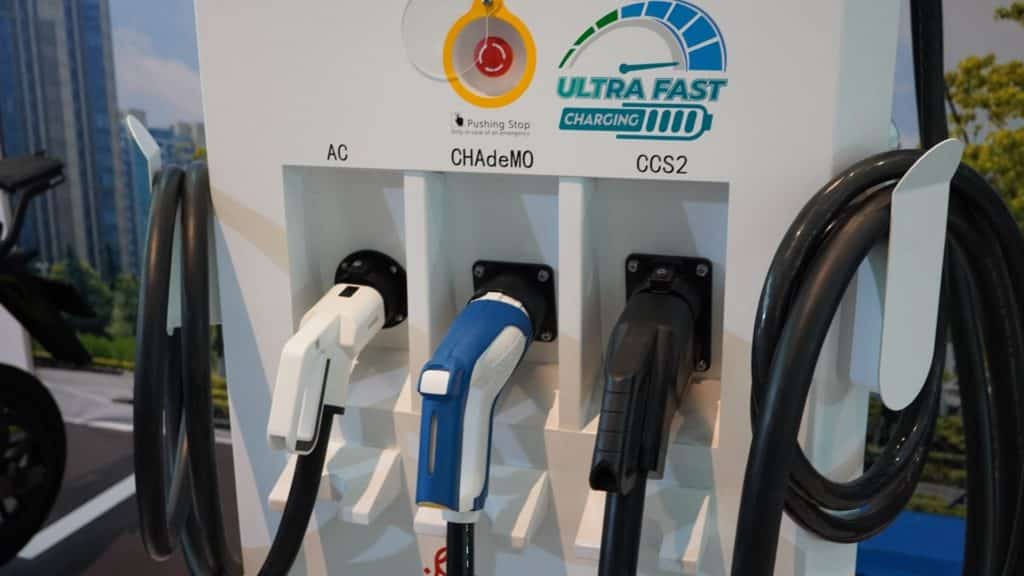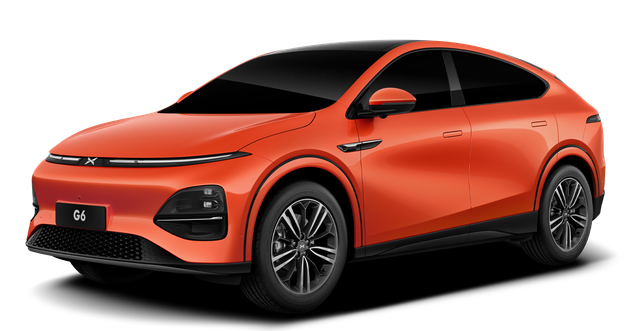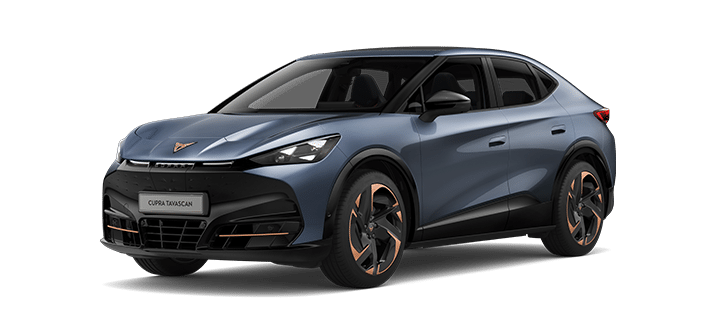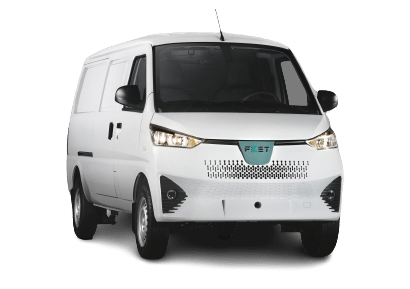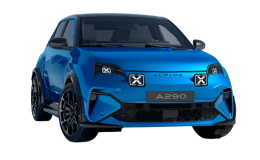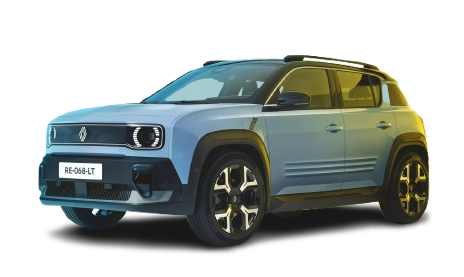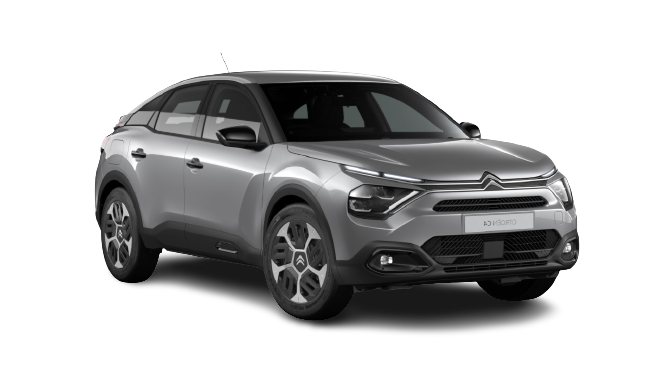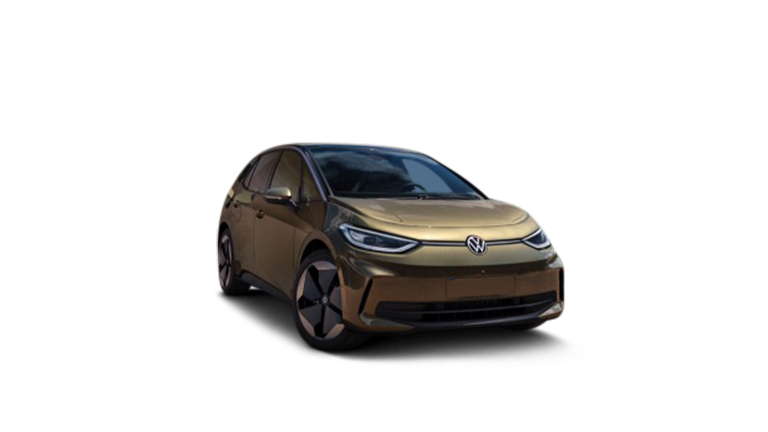The fastest charging station: the Terra 360
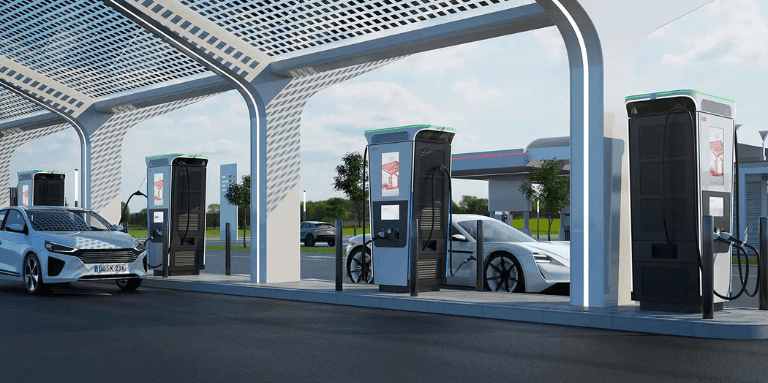
Designed by ABB, the Swiss energy and electrical infrastructure specialist, this Terra 360 charging station promises the fastest recharging speed in the world. Delivering 360 kW of DC power, it is capable of restoring 100 km ofrange to your electric car in just five minutes. Better still, it would be able to generate enough energy to fully recharge any vehicle's battery in just 15 minutes. Of course, for this to happen, your vehicle has to be able to absorb this amount of energy, which is not the case with most vehicles currently on the market.
Apart from the raw power this charging station is capable of transmitting, it has another major advantage from a logistical point of view. In terms of the power it is capable of generating, it will be able to distribute it to four vehicles at the same time. This would optimize both costs and space, allowing just as many vehicles to be recharged with fewer charging points.
Other Terra 360 features
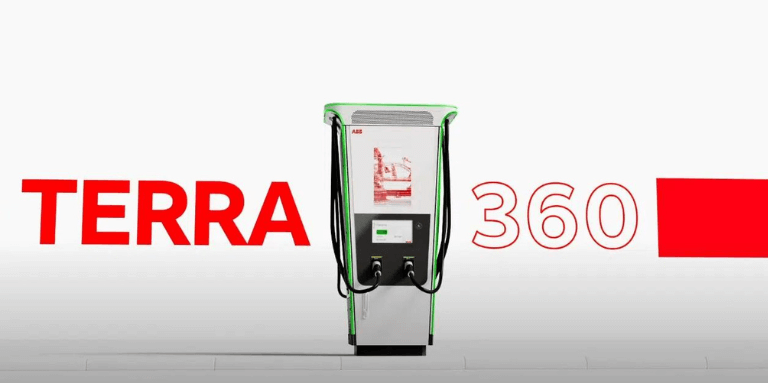
This charging infrastructurewhich could prove revolutionary for the electric car, does more than simply act as a terminal. ABB wanted to create more than just a charging station, but a fully-fledged piece of street furniture. The charging station can be used as a communication display. It features a 27-inch screen designed to show advertising films or simply digital display images. This is an additional way for the owner of the charging station to monetize its advertising space.
The infrastructure is also equipped with a lighting system that shows users their charge level. The charging station has been available in Europe since 2021, with North America and East Asia to follow in 2022.
your charging station
What are the dangers of the fastest charging point?
However, there's a catch to fast charging stations. Recharging your electric vehicle often at this speed can shorten the life of your battery. It is subjected to extreme conditions when recharging at high speed. The battery is heated to high temperatures, up to 60 degrees, in order to receive a large amount of energy. It is this temperature that can damage the battery over the long term. It is estimated that the battery can lose 10% more of its life than when recharged at normal, slow speeds.
The solution found at Penn State University
As explained above, recharging batteries at such high speeds on a recurring basis can damage them over the long term. But it doesn't have to be that way! A solution is emerging from Pennsylvania State University, also known as Penn State in Michigan, where a team of engineers is trying to increase the speed of the batteries. a team of engineers is trying to increase vehicle recharging speed.. The test has so far proved successful twice, with 320 km of range recovered in ten minutes of recharging. In carrying out these tests, they realized that by drastically raising the battery temperature to 60° and then stabilizing it at room temperature, they could recharge the electric vehicle at very high speed without damaging the battery. They explain their feat in Joule magazine.
In fact, it is this variation in temperature that has prevented the lithium battery, which generally degrades at high temperatures, from degrading and wearing out. It may even be possible to extend battery life using this method.
One of the co-authors, Chao-Yang Wang, explains that the secret of this method is to heat up the battery very quickly and prevent it from remaining at too high a temperature for too long. However, this technique, which is still in its infancy, is likely to reach industrial development within the next decade, to ensure that it presents no risk. In any case, the electric car industry will have to perfect the fast-charging system if it is to completely sweep the thermal car into the background.
What are the fastest charging station networks?
As we've seen with ABB and its Terra 360, the electric car and its recharging solutions are developing all over Europe and even the world. And that's good news for us eco-activists and electric car users: more and more players are facilitating the transition to electric cars. Here are just a few of them.
Tesla Superchargers
And who better to open the ball than Tesla. The American company, notably headed by Elon Musk, is probably the group that has put the spotlight on electric vehicles the most since their invention. It's also the brand that has contributed most to its development! With its Tesla Superchargers deployed over 10 years ago (2012), which accompanied sales of the Tesla Model S, it was the first fast-charging station to see the light of day. Originally set up to compensate for the lack of public charging infrastructure, Tesla Superchargers are now part of Europe's most extensive network of charging stations.
What's more, they are part of a network of some of the most powerful Superchargers on the market. Tesla's first Superchargers were already capable of delivering up to 150 kW. Now, with the V3 Superchargers, the available power reaches 250 kW, more than 100 kW higher than the first models. This recharging speed recovers 360 km of range in 15 minutes, representing over 73% of the total range of a Tesla Model 3, for example.
To go from 10% to 80%, you need barely 20 minutes, just long enough to get a sandwich at the freeway service area bakery, provided there's not too long a queue. And that's not all! Tesla is planning to release a V4 supercharger that could deliver up to 350 kW! This could reduce your waiting time at the gas station or rest stop. By February 2024, there were over 45,000 charge points worldwide, and over 2,000 in France alone.
TotalEnergies
French energy group TotalEnergies has launched a nationwide rollout of electric charging points. At the start of 2022, there were more than 70 stations with fast-charging stations, and the company plans to have installed more than 300 by 2023. This may sound ambitious, but the French group has the means to match its ambitions. Total plans to install 200 stations on major highways and and motorways, and the remaining hundred or so in so-called "strategic" locations around major cities.
At each station, you'll find charging stations providing between 50 and 175 kW of power. The energy supplier indicates that to connect to its charging stations, you'll need a type 2 plug for the station transmitting the least energy, which will enable the largest to recharge.
For the 43 kW alternating current and 50 kW direct current terminals, you can also use type 2 connectors, as well as the CHAdeMO and connectors. Combo CCS. Lastly, for the bollard producing the greatest power, in this case 175 kW DC, you'll need either a CHAdeMO or Combo CCS connector.
Recharging is billed at between 30 and 55 centimes per minute for the first 45 minutes, after which the rate rises from 40 to 65 centimes per minute, depending on the terminal.
Ionity similarly boasts one of the most powerful networks of charging stations in the sector. Created in 2016, the network aims to compete with Tesla's Superchargers. It is the result of an alliance between several automakers, including :
- Ford
- BMW
- Mercedes
- Volkswagen
Who were joined by Hyundai in 2019.
Today, the network that most competes with Tesla has installed over 500 charging stations across Europe, and recently inaugurated its two hundredth charging station in France! This makes Ionity one of the most developed networks alongside Tesla superchargers.
By connecting your CCS connector to their terminals, you can recharge your vehicle to 150 kW or 350 kW, depending on the terminal. This means you can recharge your vehicle in 20 or 10 minutes, provided your vehicle is capable of handling this level of power.
To recharge at Ionity charging stations, you'll need to pay 85 euro cents per minute if you don't subscribe to the network; if you do, you'll be charged 31 euro cents per minute. The Ionity subscription costs 17.99 euros per month.
See also: Ionity: the perfect charging network?
Allego
Allego is a Dutch company providing recharging solutions for both private and business customers, in addition to their service of recharging stations located throughout Europe. Established in 2013, the company has installed over 26,000 charging stations across the continent.
Their aim is to promote the recharging of various forms of electric locomotion. However, the company is a little less present in France, with only around fifty charging points spread across the country. Like its competitors, Allego offers fast-charging stations ranging from 150 to 300 kW. Prices are more affordable than with Ionity, for example. Allego charges 59 centimes per kWh for ultra-fast charging points, and 50 centimes per kWh for 50 kW charging points.
Fastned
Following in the footsteps of Tesla Superchargers, TotalEnergies, Ionity and Allego , Fastned is now offering a fast charging service for electric car users.
Fastned is already enjoying a fine reputation in Europe, before setting up shop in France, the land of bread and wine. The Dutch company has set its sights on eastern France to install its first charging stations. Fastned's charging stations are capable of transmitting 300 kW of charging power and are compatible with the CCS connector. Some terminals can also be connected with type 2 plugs providing 22 kW AC power.
Recharging at Fastned charging stations costs a modest 59 centimes per kWh. This price is only available in France, since elsewhere in Europe, recharging costs around 69 centimes per kWh.
To find out more, take a look at our video on the Fasned charging network.
Things to remember
Every day, more and more solutions are proposed to motorists with electric cars to solve the main problems encountered during their use. One of these is battery recharging speed. Fortunately, all those involved in electric mobility are working hard to remedy the situation and democratize the electric car even further.
If you would like to find out more aboutsupport for the installation of charging stations for private individuals in 2024please consult our article on the subject.
